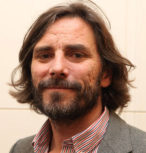DNA reveals the past and future of coral reefs
New DNA techniques are being used to understand how coral reacted to the end of the last ice age in order to better predict how they will cope with current changes to the climate. James Cook Univer

From 2005 to 2022, the main node of the ARC Centre of Excellence for Coral Reef Studies was headquartered at James Cook University in Townsville, Queensland (Australia)








Abstract:
Marine social-ecological systems are threatened by multiple and overlapping human pressures resulting in long-term trajectories of environmental degradation and decline. Governance and management responses to deal with these changes have been small, fragmented, incremental and inadequate. Recent years have seen a call for major transformational changes, but shifting from conventional approaches to new multilevel, participatory, flexible governance approaches has proven to be difficult. Governance transformation processes have in general failed to assess wide-ranging social and ecological conditions which can help understand impacts and design for further governance innovations. In fact, assessments of research needs to foster desirable adaptive responses and the capacity for scale of innovative management practices are not usually part of these transformative fisheries programs and policies. Using empirical information from marine governance transformation processes in Chile this talk presents the results of social-ecological research aimed at both understanding governance transformation consequences and fostering innovative policy adjustments aimed at increasing the sustainability of coastal fisheries. The talk highlights the importance of assessing enabling conditions created by novel governance regimes and how scientific knowledge can then aid in designing programs that focus a priori on scaling, adaptation, and innovation.
Biography:
Stefan is a Professor at the Pontificia Universidad Catolica de Chile where he studies social and ecological dimensions of marine fisheries management and environmental conservation. He was awarded a 2014 Pew Fellowship in Marine Conservation. Stefan’s work currently focuses on social-ecological systems, marine conservation, and incentive-based programs focusing on small-scale fisher and coastal communities. Stefan has published more than 100 papers and participated in consultancy for national and international NGOs, foundations and governments. Stefan is also an adviser and board member of Global Green Grants, an organization which supports grassroots environmental groups in more than 100 countries. He received his BSc from the Universidad Catolica del Norte, his MPhil from the University of Cambridge, and his PhD from University of Wales, Bangor.
New DNA techniques are being used to understand how coral reacted to the end of the last ice age in order to better predict how they will cope with current changes to the climate. James Cook Univer
A new study on the effects of climate change in five tropical countries has found fisheries are in more trouble than agriculture, and poor people are in the most danger. Distinguished Profess
James Cook University researchers have found brightly coloured fish are becoming increasingly rare as coral declines, with the phenomenon likely to get worse in the future. Christopher Hemingson, a
Researchers working with stakeholders in the Great Barrier Reef region have come up with ideas on how groups responsible for looking after the reef can operate more effectively when the next bleaching
Abstract: As marine species adapt to climate change, their heat tolerance will likely be under strong selection. Individual variation in heat tolerance and its heritability underpin the potential fo
Abstract: The Reef Ecology Lab in KAUST’s Red Sea Research Center explores many aspects of movement ecology of marine organisms, ranging from adult migrations to intergenerational larval dispersal
Abstract: Macroalgal meadows are a prominent, yet often maligned component of the tropical seascape. Our work at Ningaloo reef in WA demonstrate that canopy forming macroalgae provide habitat for ad
Abstract: Sharks are generally perceived as strong and fearsome animals. With fossils dating back at least 420 million years, sharks are not only majestic top predators but they also outlived dinosa
Abstract: Connectivity plays a vital role in many ecosystems through its effects on fundamental ecological and evolutionary processes. Its consequences for populations and metapopulations have been
Abstract: Evolution of many eukaryotic organisms is affected by interactions with microbes. Microbial symbioses can ultimately reflect host’s diet, habitat range, and even body shape. However, how
Abstract: The past few years have seen unprecedented coral bleaching and mortality on the Great Barrier Reef (GBR) but the consequences of this on biodiversity are not yet known. This talk will expl